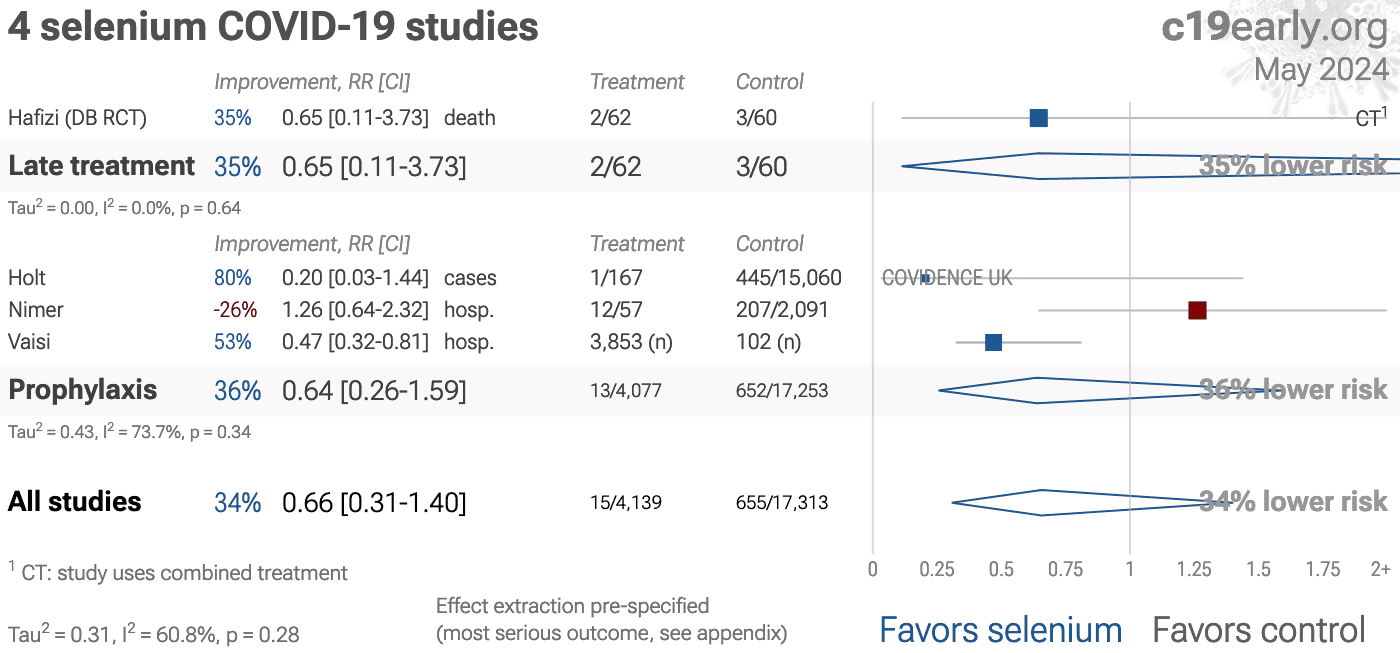
Selenium for COVID-19: real-time meta analysis of 12 studies (4 treatment studies and 8 sufficiency studies)
, Dec 2025
Meta analysis using the most serious outcome reported shows 34% [-40‑69%] lower risk, without reaching statistical significance. Results are similar for Randomized Controlled Trials and slightly worse for higher quality studies. One study shows significant benefit.
8 sufficiency studies analyze outcomes based on serum levels, showing 58% [38‑71%] lower risk for patients with higher selenium levels.
Control Selenium
1 RCT with 100 patients has not reported results (3 years late)1.
The European Food Safety Authority has found evidence for a causal relationship between the intake of selenium and optimal immune system function2,3. Sufficiency studies show COVID-19 associated with low selenium levels, however there is very limited and conflicting results for clinical outcomes with selenium treatment.
No treatment is 100% effective. Protocols combine safe and effective options with individual risk/benefit analysis and monitoring. Other treatments are more effective. Selenium currently has no early treatment studies. Dietary sources may be preferred. The quality of non-prescription supplements varies widely4-6. All data and sources to reproduce this analysis are in the appendix.
Fan et al. present another meta analysis for selenium, showing significant improvement for cases.
Covid Analysis et al., Dec 2025, preprint, 1 author.